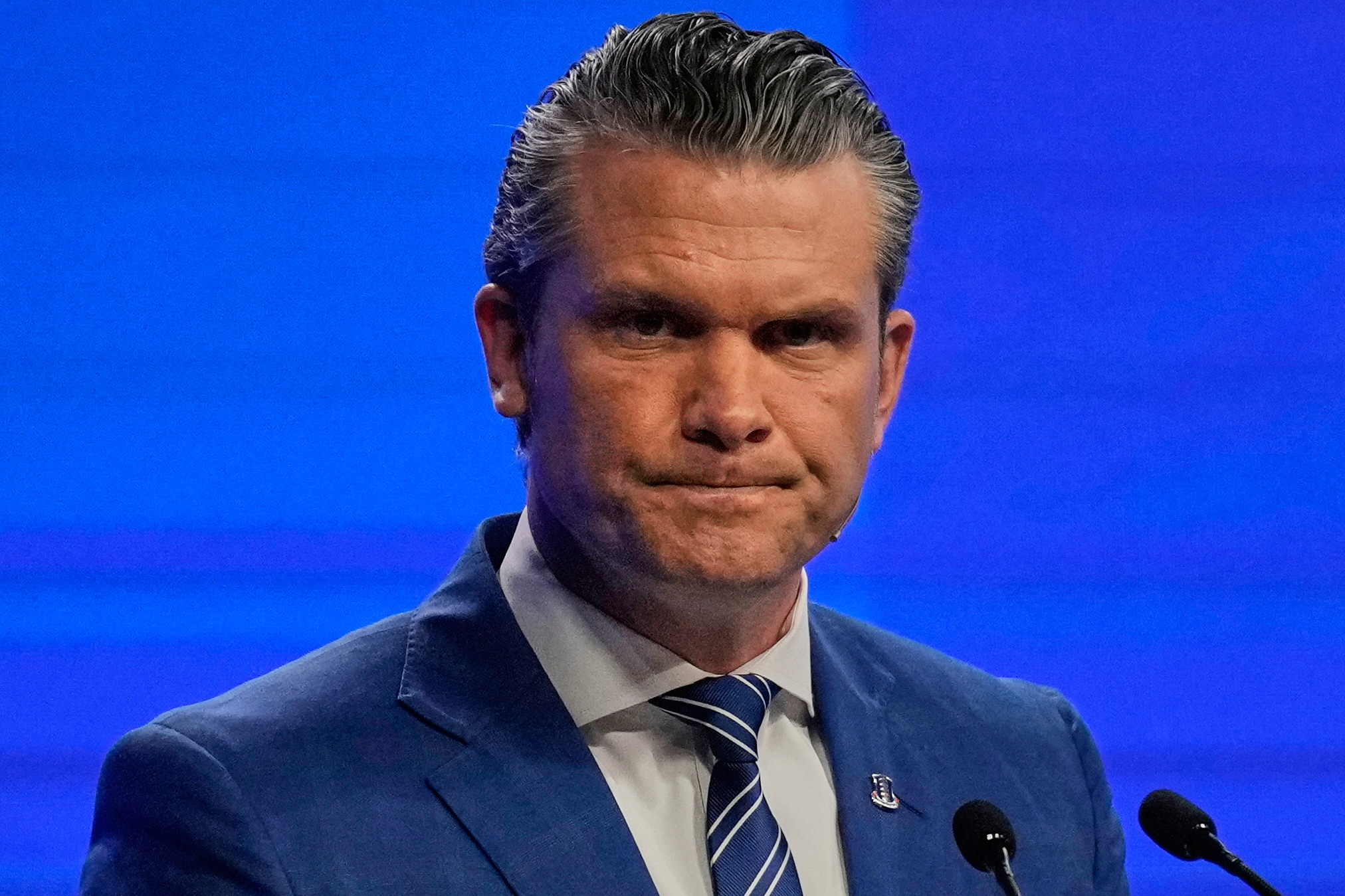
China has it back at Secretary of Defense Pete Hegseth after he described the country as a threat to the United States, amid growing tensions between Washington and Beijing.
“Hegseth deliberately ignored the call for peace and development by countries in the region, and instead touted the Cold War mentality for bloc confrontation,” the Chinese foreign ministry said.
The Context
Hegseth said on Saturday that the U.S. is stepping up its efforts to resist China’s plans to “dominate and control” Southeast and East Asia. China’s defense minister was absent from this year’s event and sent a lower-level delegation instead. The remarks sparked fury from Beijing as the relationship between the two superpowers remains on edge, with tensions escalating over trade, security, and regional influence.
Anupam Nath/AP
What To Know
The foreign ministry accused Hegseth of vilifying the country with defamatory accusations during the Shangri-La Dialogue, a global security summit, and criticized him for promoting a Cold War mentality. The statement also accused the United States of fueling regional conflict and escalating tensions in the region.
“No country in the world deserves to be called a hegemonic power other than the U.S. itself,” the Chinese foreign ministry said.
Speaking in Singapore on Saturday, Hegseth said Washington will strengthen its overseas defenses in response to what the Pentagon views as rapidly escalating threats, particularly due to an increasingly assertive posture toward Taiwan.
China’s army “is rehearsing for the real deal,” Hegseth said. “We are not going to sugarcoat it—the threat China poses is real. And it could be imminent.”
“The Taiwan question is entirely China’s internal affair. No country is in a position to interfere. The U.S. should never imagine it could use the Taiwan question as leverage against China. The U.S. must never play with fire on this question,” the Chinese Foreign Ministry Spokesperson said.
Beijing and Washington have been embroiled in a tit-for-tat over tariffs. Last month, the two sides reached a temporary deal to reduce U.S. President Donald Trump‘s tariffs from 145 percent to 30 percent for 90 days, giving negotiators time to work toward a more comprehensive agreement.
In response, China lowered its taxes on U.S. goods from 125 percent to 10 percent.
However, the future of this trade truce remains uncertain. On Friday, Trump posted on social media that he would no longer be “nice” to China regarding trade and accused Beijing of violating an unspecified agreement with the U.S.
Meanwhile, Secretary of State Marco Rubio ordered the State Department to begin revoking visas for Chinese students studying there. The Trump administration went as far as accusing Harvard University of collaborating with China.
What People Are Saying
Hegseth said: “We are prepared to do what the Department of Defense does best—to fight and win a war.”
Chinese Foreign Ministry Spokesperson said in a statement: “Hegseth deliberately ignored the call for peace and development by countries in the region, and instead touted the Cold War mentality for bloc confrontation, vilified China with defamatory allegations, and falsely called China a ‘threat.’ The remarks were filled with provocations and intended to sow division. China deplores and firmly opposes them and has protested strongly to the U.S.”
Da Wei, director of the Center for International Security and Strategy, previously told Newsweek: “What I want to stress is we are on the path to better relations with regional countries—so we don’t need the U.S. to teach us.”
Bonnie Glaser, managing director, U.S. Indo-Pacific Program’s German Marshall Fund, previously told Newsweek: “Hegseth described Chinese coercion and aggression against Taiwan and the South China Sea more clearly than any prior U.S. defense secretary. Those are facts, not confrontational posturing.
What Happens Next
The Shangri-La Dialogue will wrap up on Sunday amid ongoing tensions and unresolved disputes between the two powers. Both sides appear poised to continue their strategic posturing as efforts for diplomatic resolution remain uncertain.
